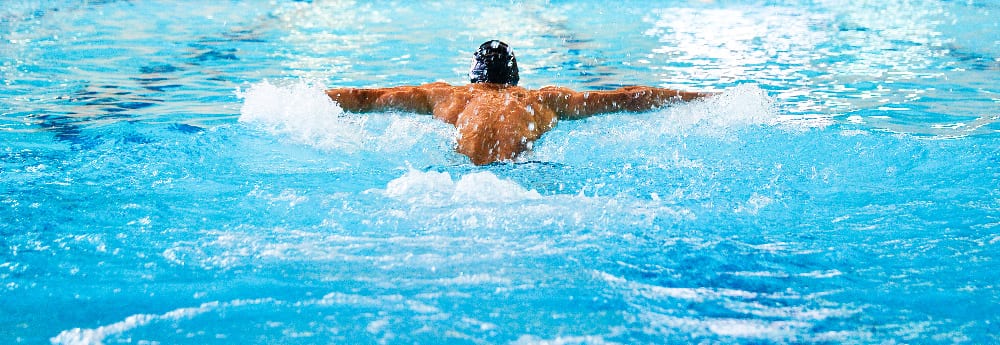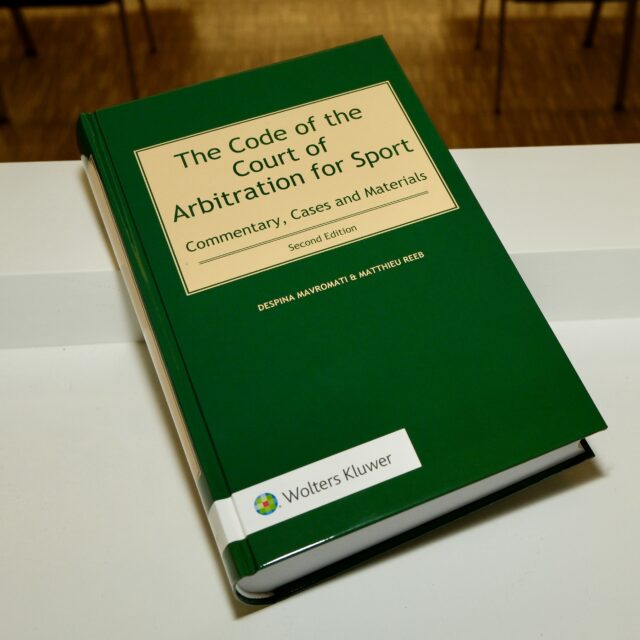4A_287/2019, Swiss Federal Tribunal (SFT) Judgment of January 6, 2020, Sun Yang v. WADA and FINA
In this judgment the SFT held in essence that a CAS letter confirming the admissibility of the appeal is not a “decision” open to challenge to the Federal Tribunal.
The case related to an alleged antidoping rule violation due to the unsuccessful attempt to take blood and urine samples during an unannounced test carried out at Sun Yang’s home back in September 2018. Even though the International Swimming Federation (FINA) Anti-Doping Commission cleared the Swimmer was cleared in January 2019, the World Anti-Doping Agency (WADA) appealed against said decision before the Court of Arbitration for Sport (CAS). This led to an overly publicised doping case and the first CAS public hearing following the modification of the CAS Code allowing for a public hearing upon request of a natural person and without the need for a consent by all the parties involved.
On 27 February 2020, the CAS Panel notified its final award to the parties, confirming WADA’s appeal and sanctioning the Athlete for 8 years for an anti-doping rule violation.
Three Appeals to the Federal Tribunal during the CAS Proceedings
This is the third in the series of appeals to the Swiss Federal Tribunal during the arbitral proceedings. All three challenges were inadmissible or devoid of purpose for various reasons: the first one (Judgment 4A_265/2019 of September 25, 2019) related to the challenge of the WADA-appointed arbitrator following the dismissal of the request for challenge by the ICAS Challenge Commission. After the spontaneous resignation of said arbitrator, the appeal had become devoid of purpose.
The second motion was filed due to an alleged conflict of interest of WADA’s counsel, who was supposedly prevented from representing WADA in the proceedings pending before the CAS, and for this reason, the Appellant argued that the briefs filed by WADA should have been deemed inadmissible. By means of a judgment rendered on October 28, 2019 (Judgment 4A_413/2019 of October 28, 2019, see our note here),the Federal Tribunal likewise dismissed said appeal.
The Appellant’s motion in the present proceedings was directed against the decision of the Panel considering that the Appeal Brief by WADA was filed within the applicable time limits and was, therefore, admissible. More specifically, the CAS informed the parties that the Hearing Panel had dismissed the plea of inadmissibility due to the late filing of the Appeal Brief, stating the following: “(...) Admissibility of the Appeal Brief: The objection to the admissibility of WADA’s appeal brief filed by Mr. A. and FINA is denied. The Panel considers that WADA’s Statement of Appeal and Appeal Brief were timely filed in accordance with Articles R49 and R51 of the Code of Sports-related Arbitration. The reasons for such decision will be set out in the final award. (…)
A decision dismissing the request of inadmissibility is not a decision on jurisdiction open to appeal to the Swiss Federal Tribunal
The Athlete requested an annulment of the decision and asked the Federal Tribunal to declare that WADA’s appeal was inadmissible for not being timely filed, which preempted the CAS from having jurisdiction.
The SFT repeated the different categories of arbitral awards for which an appeal is possible under Article 190 PILA. The common denominator for the “appealable” character of an award is that it contains a final ruling, puts an end to one or various claims, and cannot be modified at a later stage (at 3.5). More specifically, when the Panel renders an award on jurisdiction, it renders an “interlocutory” decision irrespective of the name given. Such award must be contested upon its notification, otherwise the parties are deemed to have accepted the tribunal’s jurisdiction. Inversely, mere procedural orders that can modified or revoked during the proceedings are not open to appeal (except in exceptional circumstances, see judgment 4A_596/2012 at 3.3-3.7).
In this case, again, the Appellant submitted that by accepting that the appeal was filed in due time, the Panel wrongly accepted its jurisdiction “ratione temporis” under Article 190 para. 2 lit. b PILA.
The SFT discarded this argument by finding that the CAS letter whereby the Panel dismissed the inadmissibility objection filed by the Athlete was not a decision on jurisdiction, but only a preliminary ruling on a procedural question not directly related to a jurisdictional problem. That preliminary question was whether the filing of the Appeal Brief had taken place in a timely fashion. The Panel certainly could not render this preliminary or interlocutory award without admitting, at least implicitly, on the basis of a prima facie examination, that it had jurisdiction to do so. However, it the SFT found that the Panel had not yet decided the question of its jurisdiction in a definitive manner.
The SFT reached this conclusion also assisted by the CAS’ response to the appeal through the CAS Secretary General. The latter confirmed that the CAS letter finding the appeal admissible did not contain a decision on jurisdiction. The SFT drew the analogy to a previous judgment where the Federal Tribunal held that a letter rejecting in principle an objection of jurisdiction and stating that the reasons would be communicated in the final award could not be assimilated to a formal and final decision on jurisdiction (judgment 4A_460/2008 of January 9, 2009 at 4).
The SFT concluded that the Athlete’s appeal against such non-final ruling was inadmissible.
A Decision on the Time Limit to appeal does not fall within the Scope of Article 190 (2) (b) PILA
Furthermore, the SFT reiterated its findings in the other appeal filed by the Athlete, whereby it clarified that the question of time limits to file the appeal is a question of admissibility and not related to jurisdiction (ratione temporis) (see judgment 4A_413/2019 of October 28, 2019, at 3.3.2). As such, this plea did not fall within Article 190 (2) (b) PILA.
Alleged irregular constitution of the arbitral tribunal: lack of legal interest
The second grievance was based on the alleged irregular constitution of the arbitral tribunal (Art. 190 (2) b PILA) and was equally dismissed by the Panel. The Athlete submitted that the CAS Panel which rendered the contested decision rejecting the objection of inadmissibility for the late filing of the appeal brief included an arbitrator who lacked the guarantees of independence and impartiality. Following the request for challenge against said Arbitrator filed by the Athlete and the ICAS decision rejecting such request, the Athlete filed an appeal to the SFT (see above, 4A_265/2019). Said appeal became devoid of purpose following the spontaneous resignation of the challenged arbitrator and in the SFT’s view, this could not be considered as an admission of partiality or lack of independence.
Interestingly, the SFT found that even though the ICAS decision on a challenge request can only be attacked after the issuance of the final award, the Athlete was allowed to challenge the constitution of the panel within the context of these proceedings involving a partial decision (i.e. not directly linked to the request for challenge of a specific arbitrator) based on Article 190 (3) PILA.
That said, since the arbitrator in question had already spontaneously resigned before the Athlete’s appeal, the SFT had to consider whether the Athlete still had an interest in appealing against the interlocutory decision due to the irregular composition of its panel (at 5.3).
The Court reiterated the admissibility principle of an interest worthy of protection in the annulment of the contested decision. As to the consequences of resignation of the arbitrator, the SFT referred to Article R36 of the CAS Code concluding that “Acts performed before the resignation of an arbitrator therefore remain in principle valid”(MAVROMATI/REEB, The Code of the Court of Arbitration for Sport, 2015, para. 15 ad Article R36 of the Code). Following the arbitrator’s resignation, the new CAS Panel never questioned the procedural acts that had already taken place. By so doing, it implicitly confirmed all the actions of the panel in its previous composition. The SFT thus concluded that the Athlete lacked a current legal interest in contesting the irregular composition of the Arbitral Tribunal. This is a basic admissibility condition under Article 76 (1) (b) of the Law of the Federal Tribunal (Loi sur le Tribunal Fédéral, LTF).
Overall, this is yet another judgment where the SFT repeated its conditions for an arbitral tribunal’s decision open to challenge before the SFT. As such, a CAS letter confirming the admissibility of the appeal is not a decision open to challenge before the Swiss Federal Tribunal and, in any event, falls outside the scope of Article 190 (2) (b) PILA.








